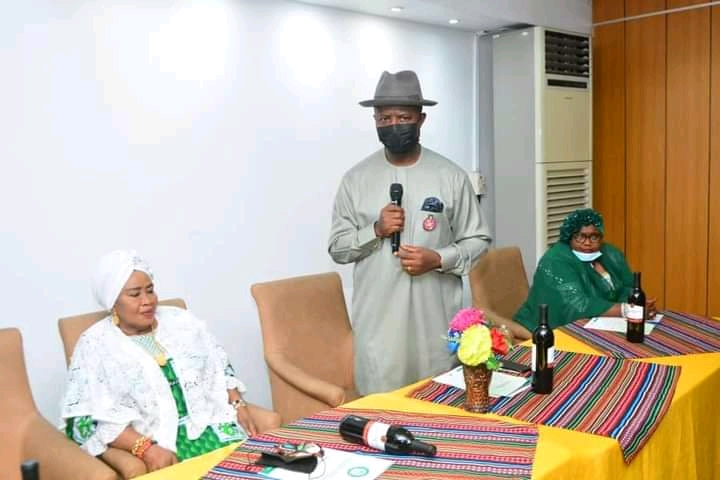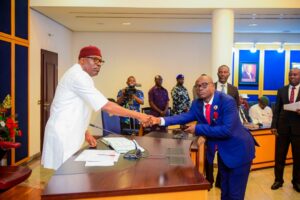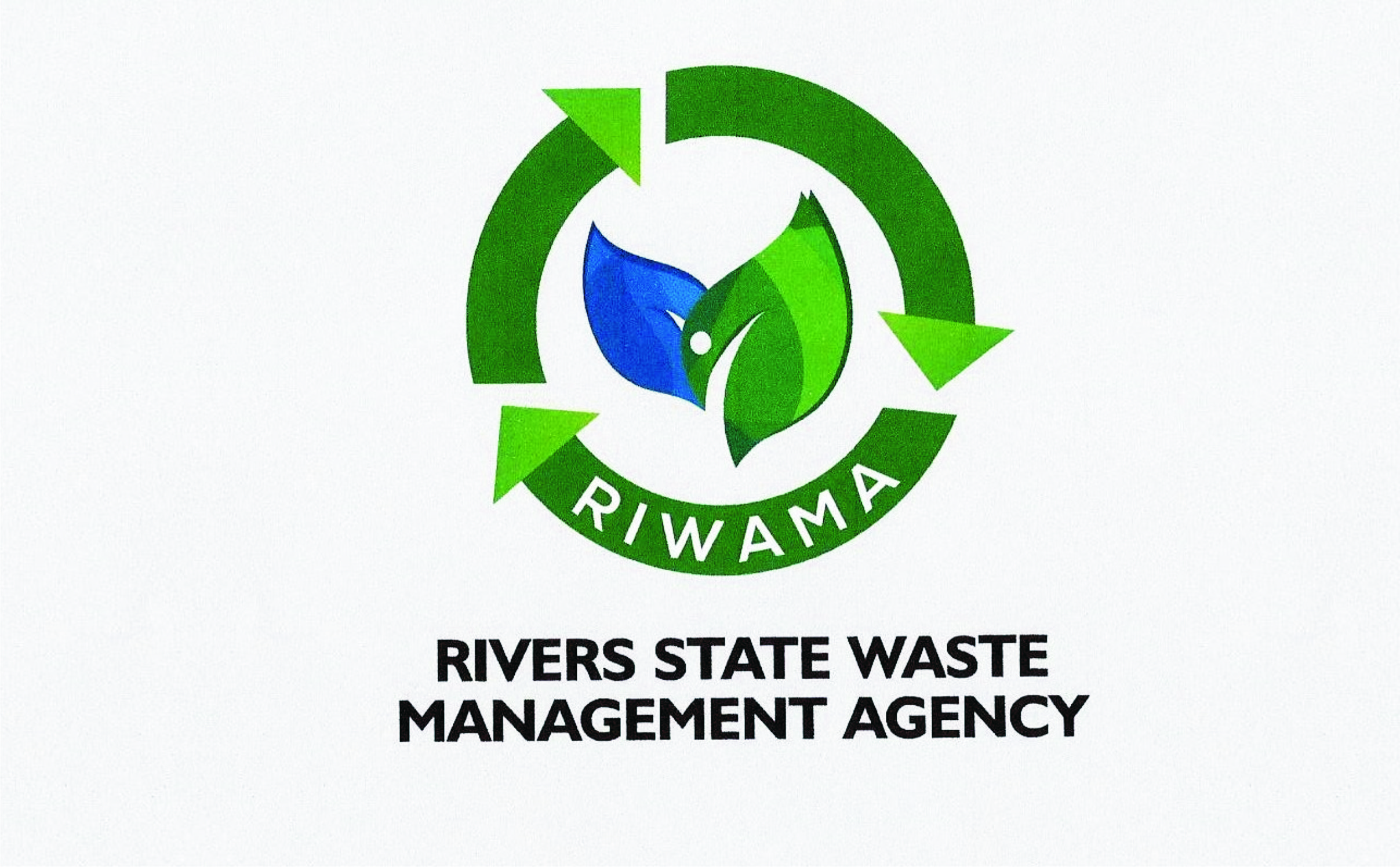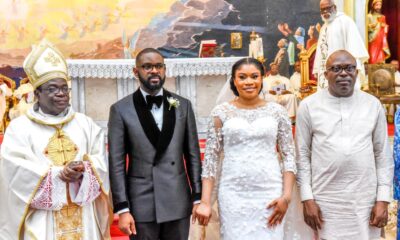News
…Senators Move To Override Buhari …Lawan, Gbajabiamila Read Withdrawal Of Assent Letters …CISLAC, TI Task NASS To Veto President

Strong indications emerged, yesterday, that senators may override President Muhammadu Buhari’s veto on the Electoral Amendment Bill, 2021, today.
The development followed the rejection of President Muhammadu Buhari to assent to the Electoral Amendment Bill, 2021, which a letter was acknowledged and read in the Upper Chamber by the Senate President, Dr Ahmad Lawan, at yesterday’s plenary.
This is as the President of the Senate, Dr Ahmad Lawan, yesterday, read the letter of President Muhammadu Buhari withholding of assent to the 2021 Electoral Act Amendment Bill, just as the Civil Society Legislative Advocacy Centre (CISLAC) and Transparency International (TI) Nigeria expressed disappointment over the failure of Buhari to sign the Electoral Act (Amendment) Bill, 2021, and challenged the National Assembly to override the president in the interest of Nigerians.
Senator Thompson Sekibo, representing Rivers East Senatorial District and Chairman, Senate Committee Chairman on Nigeria Navy, in an interview, confirmed, yesterday, that signatures of lawmakers were being collated in earnest to override President Muhammadu Buhari.
The lawmaker described as a huge disappointment, Buhari’s failure to assent to the amendment bill, saying that senators would rise to the occasion irrespective of political differences.
Sekibo believed that majority of senators were not happy, disclosing that about 73 signatures have so far been collated preparatory for today’s override of Buhari’s veto.
Though, efforts to access list of senators who have already indicated readiness to override Buhari through signatures proved abortive, a senator from a North-West state who is a member of the ruling All Progressives Congress (APC) said, he and “many more others”, are committed to overriding Buhari’s veto today.
“We are 109 in number, and I can vouch for myself and many others that we form the required number in tomorrow’s plenary to override President Buhari.
“Remember that it’s not only direct or indirect primary election that was amended. There are several other items that are of immense benefit to the political development of the nation.”
The lawmaker, who insisted that he should not be quoted further, hinted that they may convene an emergency meeting of northern senators before tomorrow to convince others to see reasons.
President Muhammadu Buhari had, last Monday, written to the upper and lower legislative chambers, saying he declined his assent to the Electoral Act Amendment Bill.
The letter was read by the President of the Senate, Dr. Ibrahim Lawan at yesterday’s plenary.
Buhari’s letter to lawmakers cited several reasons he declined assent, among which he cited security concerns, lack of capacity of smaller political parties and the cost inherent in the conduct of direct primary elections.
Other lawmakers who spoke in similar vein, hinted that overriding Buhari’s veto would precede passage of the 2022 budget.
However, the President of the Senate, Dr Ahmad Lawan, yesterday, read the letter of President Muhammadu Buhari withholding of assent to the 2021 Electoral Act Amendment Bill.
This is as the Civil Society Legislative Advocacy Centre (CISLAC) and Transparency International (TI) Nigeria have expressed disappointment over the failure of Buhari to sign the Electoral Act (Amendment) Bill, 2021, and challenged the National Assembly to override the president in the interest of Nigerians.
Buhari, in the letter is withholding assent to the bill, had cited the imposition of direct primaries approved by the National Assembly, as a means of picking candidates by political parties in the amended Electoral Act as a violation of the spirit of democracy.
According to Buhari, with direct primaries, there will be plethora of litigation from party members and stakeholders, just as he said that allowing the process would fuel corruption as well as encourage over monitisation of the process.
In the letter read during plenary after the senators came out from a closed-door session that was held from 10.42am to 11.42am, Buhari said that direct primaries would raise credibility issues as well as lead to undue interference, even as Buhari asked the Senate to quickly consider 2021 Appropriation Virement of N13.588trillion to fund infrastructure.
Buhari also said that he was withholding assent to the bill based on direct primaries because it would cause a huge financial burden on political parties, the Independent National Electoral Commission (INEC), the economy and security agencies, adding that the process was undemocratic.
The National Assembly had on Tuesday, November 9, 2021, passed the much anticipated Electoral Act Amendment Bill 2021 after both the Senate and House of Representatives deliberated extensively on the report of the Conference Committee on the bill.
The Senate had on that day, passed the harmonised version of the Electoral Act (Amendment) Bill, 2021.
The passage followed the consideration of the report of the Conference Committee of the Senate and House of Representatives on the bill.
In line with customary legislative procedures, the two chambers had in September set up Conference Committees to reconcile disparity in the versions of the bill as passed by the Senate and House of Representatives.
Consequently, the National Assembly had on November 19, 2021, transmitted the bill to Buhari for assent in line with Section 58(4) of the 1999 Constitution that “Where a bill is presented to the President for assent, he shall within 30 days thereof, signify that he assents or that he withholds assent.”
Similarly, Speaker, House of Representatives, Hon. Femi Gbajabiamila, has formerly received and read the letter conveying President Muhammadu Buhari’s reasons for withholding assent to the Electoral Act Amendment Bill.
In the letter, the president advanced a couple of reasons for withholding the signature.
The mood of the House can be described as sombre as Gbajabiamila read the letter.
“The conduct of direct primaries across the 8,809 wards across the length and breadth of the country will lead to a significant spike in the cost of conducting primary elections by parties as well as increase in the cost of monitoring such elections by INEC who has to deploy monitors across these wards each time a party is to conduct direct primaries for the presidential, gubernatorial and legislative posts”, the president said amid other reasons.
Reacting, the Civil Society Legislative Advocacy Centre (CISLAC) and Transparency International (TI) Nigeria expressed disappointment over the failure of President Muhammadu Buhari to sign the Electoral Act (Amendment) Bill, 2021.
Consequently, CISLAC and TI have urged the National Assembly to override the president on the Electoral Bill.
The Executive Director of CISLAC and Head, TI Nigeria, Auwal Ibrahim Musa, called on the National Assembly not to disappoint Nigerians but do the needful.
“Elections remain a critical aspect of democracy as it is the gateway for all citizens to achieve their aspirations for democracy, and a transparent election can only be achieved by creating a legal framework, a robust legal framework that can respond to the current challenges we face.
“The bill seeks to improve the electoral system by providing the legal backing for the use of technology in the accreditation of voters and transmission of election results. It seeks to enhance timelines for electoral activities, including voting, collation, and announcement of results, and adequately defines over-voting, confers authority on INEC to review questionable election results and monitor direct primaries for all political parties.
“We believe that this bill will increase transparency in our electoral process, encourage citizens to participate in the process as aspirants and voters as well as help improve the ideology of our elections by reducing the reliance on dirty money.”
Auwal, who is the chairman, Transition Monitoring Group (TMG), urged the lawmakers to exercise their powers to override the president.
“We, therefore, call on the 9th Assembly to etch its name in gold in the right pages of our history by exercising its powers under Section 58 (5) of the Constitution of the Federal Republic of Nigeria 1999 (as Amended) which states that, ‘Where the President withholds his assent and the bill is again passed by each House by two-thirds majority, the bill shall become law and the assent of the President shall not be required’.
“If the National Assembly vetoes the president, it will show their independence and above all, respect the view of the constituents who gave them the mandate to legislate on their behalf.
“NASS can simply not afford to disappoint Nigerians!” he said.
Earlier, President Muhammadu Buhari had explained why he declined assent to the Electoral Act (Amendment) Bill 2021.
In a letter to the leadership of the National Assembly, Buhari expressed reservations over the imposition of direct primaries on the parties.
Buhari said the bill has serious adverse legal, financial, economic and security consequences.
He noted that the limitation or restriction of the nomination procedures available to political parties and their members constitutes an affront to the right to freedom of association.
In the letter titled: “Withholding of Assent to Electoral Act (Amendment) Bill 2021,” Buhari said: “Further to the letter dated 18th November, 2021, forwarded for Presidential assent, the Electoral Act (Amendment) Bill 2021, as passed by the National Assembly, I have received informed advice from relevant Ministries, Departments and Agencies of the government, and have also carefully reviewed the bill in light of the current realities prevalent in the Federal Republic of Nigeria in the circumstances.”
Buhari stated that based on the review, the Electoral Act (Amendment) Bill 2021 “has serious adverse legal, financial, economic and security consequences, which cannot be accommodated at the moment considering our nation’s peculiarities.”
Besides, the president stated that the bill also “has implications on the rights of citizens to participate in the government as constitutionally ensured.”
According to him, “The Electoral Act (Amendment) Bill 2021 seeks to amend certain provisions of the extant Electoral Act 2010. Part of the objective of the bill is the amendment of the present Section 87 of the Electoral Act, 2010 to delete the provision for the conduct of indirect primaries in the nomination of party candidates such that party candidates can henceforth only emerge through direct primaries.
“The conduct of direct primaries across the 8,809 wards across the length and breadth of the country will lead to a significant spike in the cost of conducting primary elections by parties as well as increase in the cost of monitoring such elections by INEC, who has to deploy monitors across these wards each time a party is to conduct direct primaries for the presidential, gubernatorial and legislative posts.
“The addition of these costs with the already huge cost of conducting general election will inevitably lead to huge financial burden on the political parties, INEC and the economy in general at a time of dwindling revenues.”
The president also hinged his rejection of the bill on security implications.
According to him, “In addition to increased costs identified above, conducting and monitoring primary elections across 8,809 wards will pose huge security challenges as the security agencies will also be overstretched, direct primaries will be open to participation from all and sundry and such large turn-out without effective security coordination will also engender intimidation and disruptions, thereby raising credibility issues for the outcomes of such elections.”
Buhari also said the bill is a violation of the spirit of democracy.
He said: “The amendment as proposed is a violation of the underlying spirit of democracy, which is characterised by freedom of choices. Political party membership is a voluntary exercise of the constitutional right to freedom of association. Several millions of Nigerians are not card-carrying members of any political party.
“Thus, the emphasis should be on enabling qualified Nigerians to vote for the candidate of their choice during general election as a means of participation in governance and furtherance of the concept of universal adult suffrage or universal franchise.”
The president added that the bill as presently captured would give rise to litigations “based on diverse grounds and issues of law including but not limited to the fact that the proposed amendment cannot work in retrospect given that the existing constitution of the parties already registered with the Independent National Electoral Commission (INEC), permits direct, indirect and consensus primaries.
“This real possibility, will, without doubt, truncate the electoral programme of the nation as another electoral exercise is imminent towards a change of government in 2023. Nigeria is at the moment still grappling with the issues of monetisation of the political process and vote buying at both party and general election.
“The direct implication of institutionalising only direct primaries is the aggravation of over monetisation of the process as there will be much more people a contestant needs to reach out to thereby further fuelling corruption and abuse of office by incumbent contestants, who may resort to public resources to satisfy the increased demands and logistics of winning party primaries.”
The president did not rule out manipulation of the process through direct primaries.
He said: “Rival parties can also conspire and mobilise people to vote against a good or popular candidate in a party during its primaries just to pave way for their own candidates. Whereas where voting is done by accredited delegates during indirect primaries, the above irregularities are not possible.
“The major conclusions arrived at upon the review are highlighted hereunder, to wit: Asides its serious adverse legal, financial, economic and security consequences, the limitation or restriction of the nomination procedures available to political parties and their members constitutes an affront to the right to freedom of association.
“It is thus undemocratic to restrict the procedure or means of nomination of candidates by political parties, as it also amounts to undue interference in the affairs of political parties.
“Indirect primaries or collegiate elections are part of internationally accepted electoral practices. More so, direct primaries are not free from manipulations and do not particularly guarantee the emergence of the will of the people especially, in circumstances like ours, where it is near impossible to sustain a workable implementation framework or structure thereof.
“In the premise of the above, I hereby signify to the National Assembly that I am constrained to withhold assent to the Electoral Act (Amendment) Bill 2021 in line with the provisions of Section 58(1) & (4) of the 1999 Constitution (as amended).
“It is my considered position that the political parties should be allowed to freely exercise right of choice in deciding which of direct or indirect primaries to adopt in the conduct of their primary elections as their respective realities may permit. Please, accept the assurance of my highest consideration and esteem.”
By: Nneka Amaechi-Nnadi, Abuja
News
Enforce Discipline In Legislative Service, Fubara Charges New RSHA Commission

Rivers State Governor, Sir Siminalayi Fubara, has charged newly sworn-in chairman and members of the State House of Assembly Service Commission to achieve greater productivity, promote highest standard and insist on best practices in the discharge of Legislative services.
Governor Fubara also urged them to ensure that parliamentary staff are put through disciplinary conducts in the discharge of their duties in the service.
Governor Fubara gave the charge shortly after the chairman and members of the Rivers State House of Assembly (RSHA) Service Commission were sworn-in at the Executive Chamber of Government House in Port Harcourt, last Friday.
The Governor also sworn-in the chairman and members of the Rivers State Local Government Service Commission.
Hon Tamunosisi Gogo-Jaja, is the chairman of RSHA, with Dr Kennedy Ebeku, Hon. Soberekon Clark, Hon. Jones Ogbonda, and Hon Kingston Sylvanus as members.

For the Rivers State Local Government Service Commission, Hon GoodLife Ben will serve as the chairman, with Chief Emmanuel G. Jaja, Ms. Betty Warmate, Barrister Jerome Chimenem, Hon Prince O. Ohochukwu, Barrister Philip Okparaji, and Christian Amadi as members.
Governor Fubara explained that the constitution and swearing-in of the respective commissions were delayed with the hope that all former members of the political block will come back together but quickly added that such expectation is dashed now as governance has to move on.
He said: “As it stands now, our position is very clear. The ship that we are onboard is clear, and the activities of governance have to continue.
“So, this swearing-in is to give these two units of government – particularly, the House of Assembly Service Commission, a formal commission so that you can start carrying out the activities of promotion, discipline and every other thing that has to do with the legislative staff activity.”
Governor Fubara emphasised: “This assignment is not business as usual. You have to take full charge, and you have to ensure that there is discipline in the service.”
Speaking on the Local Government Service Commission, Governor Fubara said an acting Chairman was previously appointed to hold brief while the situation was being studied but quickly added that as it stands now, a full fledged commission has to be constituted to steer affairs.
Governor Fubara stated that the various Local Government Councils have been mandated to commence payment of the N85,000.00 Minimum Wage to their workers.
However, Governor Fubara said that mandate had met with series of complaints about ghost workers or inflated payroll staff list, which required proper scrutiny in order to ensure that only genuine workers benefit.
He said, “You must ensure that you support the Local Government Chairmen to get rid of those fake names in the payroll, so that when they implement the N85,000.00 Minimum Wage, it will not be too much burden on them.
“I am not saying you should go and dismiss people who are genuinely employed. Hear me very well: there must be proper scrutiny to be sure that whoever is there must be a genuine civil servant employed by the commission, and must have met all the conditions.”
Governor Fubara also directed the commission to address the issue of staff stagnation on a particular grade level, which is an ugly practice, and make sure those due promotion truly benefit from statutory progression in the service.
He said, “The second side is, you have the issue of promotion, you must also ensure that they are adequately promoted so that they can start enjoying like their counterparts in the mainstream.
“There is too much dragging of their promotion, for somebody to be on Grade Level 4 for over 30 years is not good. It is not good news.”
Governor Fubara maintained: “I believe strongly that you will not allow yourselves to be corrupted like those stories that we used to hear. Make sure that there is acceptable level of discipline and standard in the Local Government Service Commission.
“I also believe strongly that you are already prepared for this assignment, and since you are prepared, I will charge you to go do what you know how to do best. Be assured that the government will give you all the necessary support.”
Governor Fubara noted that the task before them could seem Herculean but they should be assured of support from his administration to drive the assignment given to them to reckonable success.
News
Be Innovative In Waste Management, Fubara Tasks RIWAMA ….. Inaugurates Six-Member Board

Rivers State Governor, Sir Siminalayi Fubara, has said that the open dumping of wastes has to be replaced with a more innovative and efficient disposal method so that wastes can be taken off the streets and turned into income-yielding ventures.
Governor Fubara made the assertion while giving charge to the newly constituted Board of Directors of the Rivers State Waste Management Agency (RIWAMA) and its Managing Director at Government House in Port Harcourt, last Friday.
The Board members included Engr. Edward Namiesimagh as the chairman, while Hon. Bishop Best, Dr. Ipalibo Sogules, Richard Mazi, and Civian Y. Nwibari are members, with Hon. Orukwem Amadi-Oparaeli as the Managing Director.
Governor Fubara said waste disposal and management have remained a major global concern, adding that over the years, successive administrations in the State had struggled to take wastes off the streets but ended up taking them to other dumpsites where they constitute nuisance and environmental hazards.
He said, “Today, I am here putting a team together to look at these challenges differently. Let it not be the regular pattern whereby at the end of the month, you come to collect money from me for payments.
“Don’t indulge in appointing your friends as sweepers, evaluators of debris, then you start building hotels, or buying big cars. Let us go beyond that and tap into the potentials of waste management.
“It is an area in this world that there is so much money in. It is an area that creates employment, and generates huge revenue. It is not just depending on what I will give to you. Consider what change you’ll bring to the work, that’s what I want to see in Rivers State.”
Governor Fubara told them that they were carefully selected because of the experiences they had garnered in their previous public assignments, and urged them to replicate their successes on a bigger scale with the new appointment.
The Governor advised them to work assiduously to bring back the beauty of Port Harcourt with effective waste disposal drive, and ensure the city is clean and green to reflect its old Garden City status.
Governor Fubara emphasised: “If not for our effort, today, some people could have even changed it to become Garbage City. But God forbid, it is not going to be in our own time.
“I want you to understand that I feel very unhappy with the sight I see. When you are driving into Port Harcourt, one of the first things that will welcome you is the waste dump that you see along the Obiri-Ikwerre-Airport Road. I don’t feel happy about it.
“Your first task should be to relocate it. That particular place needs to be completely closed because it is the entrance to the city. You need to get a new place where we can relocate our wastes.”
Governor Fubara urged them to be more responsible as they discharge their assignment, saying that it is more important to see results than being merely preoccupied with the aura of office.
The Governor warned that he will not hesitate to relieve anyone found wanting, and return the agency back to the era of a sole administrator running the affairs of the agency.
He noted, “This team cuts across all the Senatorial Districts, so that whatever you are going to do there, you ensure it spreads. While you are also carrying out this job, let it be known to the world that the interest of everybody in the State is accommodated.
“It shouldn’t be one-sided. Make sure that all our supporters who have the capacity and competence to do little jobs in the refuse area are also accommodated. I am serious. I have no doubt that you are going to impress us. So, I charge you to do all you can to make sure that the face of Port Harcourt changes when it comes to the issue of refuse.”
Governor Fubara told them to be good ambassadors of his administration as they interface with members of the public while also changing the face of refuse management in the State.
In his acceptance speech, Chairman of Rivers State Waste Management Agency (RIWAMA), Engr. Edward Namiesimagh, expressed appreciation to the Governor, on behalf of members of the Board, for finding them worthy to handle such difficult but surmountable task of keeping Port Harcourt clean.
He said, “When I see the calibre of people you assembled, all of us are happy, and I assure that with our period of experience in our fields and politics and interaction with people and the zeal that comes with this job, we assure you that we will do our best to make sure that the policy of restoring Port Harcourt to its lost glory is achieved with your support.”
News
Fubara Graces Agric Commissioner’s Wedding At Ciwa

Rivers State Governor, Sir Siminalayi Fubara, on Saturday, graced the solemnization of Sacrament of Matrimony between Engr Victor Kii, and his heartthrob, Engr Mercy Mankwe.
Engr Kii is the Rivers State Commissioner for Agriculture.
The wedding ceremony was held at Our Lady of the Holy Rosary Chaplaincy, Catholic Institute of West Africa (CIWA), along the Port Harcourt-Aba Expressway, Rumuibekwe in Obio/Akpor Local Government Area.
In his Homily, the Chief Celebrant, Bishop of the Catholic Diocese of Sokoto, Most Rev Matthew Hassan Kukah, said marriage is an enduring union, ordained by God for two persons – man and woman – who have decided in love to live their lives together.
Bishop Kukah stated that people in such Christian marriage should know that they are in an indissoluble union, bounded by faith, and advised them to gladly make personal sacrifices in tolerance and care for each other so that they can have a healthy, successful and rewarding life together.
In his vote of thanks, co-celebrant, Very Rev Monsignor Pius Kii, showered commendations on the Governor for his fatherly support to the family, and the numerous landmark achievements in various sectors across the State.
The clergy and the church took the opportunity to pray for the success and good health of Governor Fubara and his administration, and urged God to protect, guide and defend him at all times.
The church also presented 50th birthday cake and gifts to the Governor, and also sang birthday songs to accentuate the celebration.
Highlights of the event were the signing of the marriage register by the new couple, Victor and Mercy, and the cutting of the 50th Birthday cake by the Governor.
-

 News4 days ago
News4 days agoFubara Graces Agric Commissioner’s Wedding At Ciwa
-
Sports4 days ago
‘Don’t Rely Too Much On NCAA Athletes’
-
Politics4 days ago
PDP, APC Trade Blame Over Killings In Osun Local Councils’ Crisis
-
News4 days ago
‘We’ll Upscale Education Infrastructure To Advance Learning In Rivers’
-
Business4 days ago
Maritime Journalists Confer Iconic Award On Customs CG
-

 News4 days ago
News4 days agoBe Innovative In Waste Management, Fubara Tasks RIWAMA ….. Inaugurates Six-Member Board
-
Sports4 days ago
Rangers Showed Character In Remo Defeat – Coach
-
Politics4 days ago
Lagos Assembly Commotion: Lawmakers Reject Obasa’s Return, Pass Confidence Vote On Meranda

